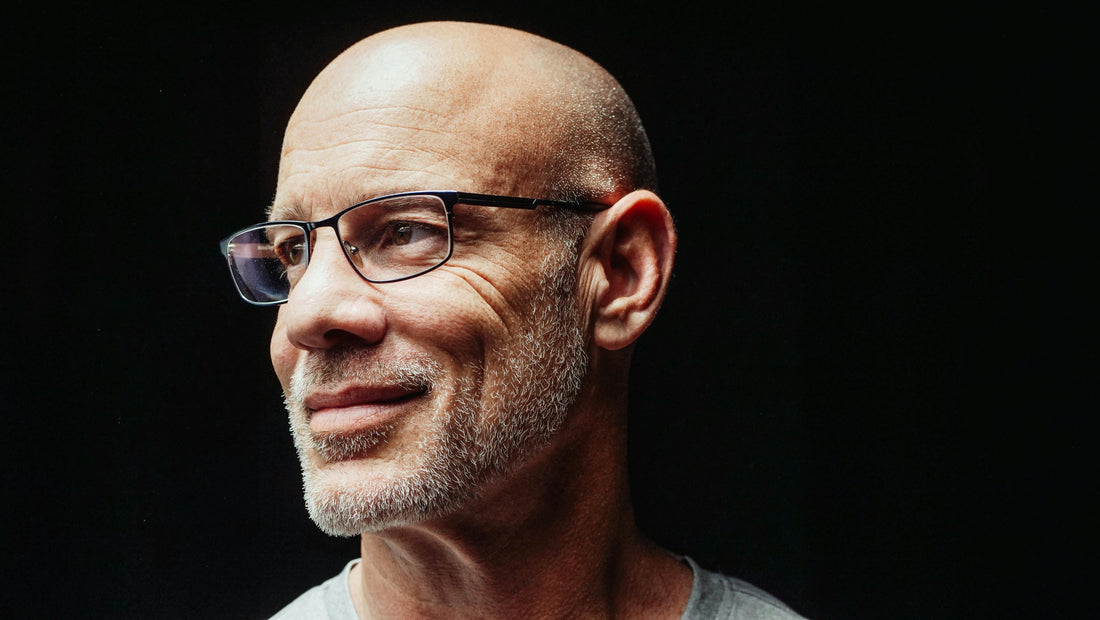
Biotin and Androgenetic Alopecia – Is It Worth Using?
Share
Androgenetic alopecia is one of the most common issues affecting both men and women. In the search for effective treatments, many people turn to supplements containing biotin. But can biotin genuinely help reduce or slow down androgenetic hair loss? To answer this question, it’s worth taking a closer look at the role of biotin and the scientific studies that have analysed its impact on this type of alopecia.
Biotin in the Context of Androgenetic Alopecia
Androgenetic alopecia (AGA) is primarily caused by genetic predisposition and the activity of androgens – sex hormones such as dihydrotestosterone (DHT). Under the influence of DHT, hair follicles undergo miniaturisation, which weakens the hair and eventually leads to hair loss.
Biotin, also known as vitamin H or B7, is frequently mentioned as a potential ingredient that supports hair health, although its mechanism of action is not directly linked to blocking DHT. Many people dealing with AGA take biotin in hopes of improving hair quality and density, but it's worth considering whether this supplementation provides real benefits in the context of this condition.
What Do Studies Say About Biotin and Androgenetic Alopecia?
Although biotin supplementation is widely promoted, there is a limited number of clinical studies directly linking its use to improvement in the treatment of AGA. Current analyses suggest that a deficiency in biotin can lead to weakened hair structure, increased fragility, and hair loss. However, in the case of androgenetic alopecia – which is hormonal in nature – the situation is different.
Clinical and observational studies indicate that biotin may improve hair quality, making it more resistant to mechanical damage, but it does not affect the hormonal mechanism responsible for follicle miniaturisation. This means that people suffering from AGA may only benefit from biotin if they also have a deficiency in this vitamin.
Studies have also shown that high-dose biotin supplementation on its own, without addressing DHT levels, does not bring noticeable therapeutic effects in stopping the progression of androgenetic alopecia. Therefore, for patients struggling with AGA, therapies targeting the root cause – the DHT hormone – are essential.
When Is Biotin Supplementation Worth Considering?
Dermatology experts suggest that biotin supplementation makes sense primarily for individuals who actually have a deficiency. Symptoms such as increased hair breakage, brittle nails, or skin issues may indicate such a deficiency. It’s worth conducting appropriate diagnostic tests to assess biotin levels and, if needed, introduce supplementation.
Additionally, people on restrictive diets, those with nutrient absorption disorders, or individuals with specific chronic conditions may be more prone to biotin deficiency. In such cases, supplementation can significantly improve hair condition.
In the case of androgenetic alopecia, however, it’s more important to introduce therapies aimed at blocking DHT, such as minoxidil, finasteride, or more advanced treatments like platelet-rich plasma (PRP) therapy or hair transplantation.
The Role of Biotin in Supporting Other Treatments
An interesting point to consider is the potential of biotin as a supportive therapy. Even if biotin does not directly treat AGA, it may improve the overall condition of the scalp and hair, supporting the effectiveness of more targeted therapies.
For example, people using minoxidil may notice improved hair structure and resistance to mechanical damage when biotin is used alongside. Similarly, platelet-rich plasma therapy may yield better results when hair quality is maintained through supplementation.
Pitfalls of use Biotin in AGA
Biotin supplementation is not without risks. Excessive use of biotin can interfere with diagnostic test results, such as falsely low readings in hormone tests, including thyroid hormones. This is why it’s crucial to consult a doctor before starting supplementation, to determine the appropriate dosage and whether biotin is actually needed.
Irresponsible use of high doses without medical indication may be inappropriate, especially in the absence of a deficiency. In extreme cases, it can disrupt the balance of other B vitamins, leading to further health complications.
Expert Summary – To Use or Not to Use?
If you are struggling with androgenetic alopecia, biotin should not be seen as the primary treatment option. Supplementation is reasonable only if you have a confirmed deficiency or signs of hair deterioration linked to nutritional issues.
Remember, the key to treating AGA is targeting the root cause – blocking DHT or stimulating hair follicle activity. It’s best to consult a dermatologist or trichologist, who can select the most appropriate and individualised treatment approach.
In conclusion, biotin may be a valuable addition for supporting hair condition, but in the context of androgenetic alopecia, it should be considered a complementary rather than primary therapy. Seeking professional advice can help avoid disappointment and ensure the implementation of effective treatment tailored to your body’s needs.
